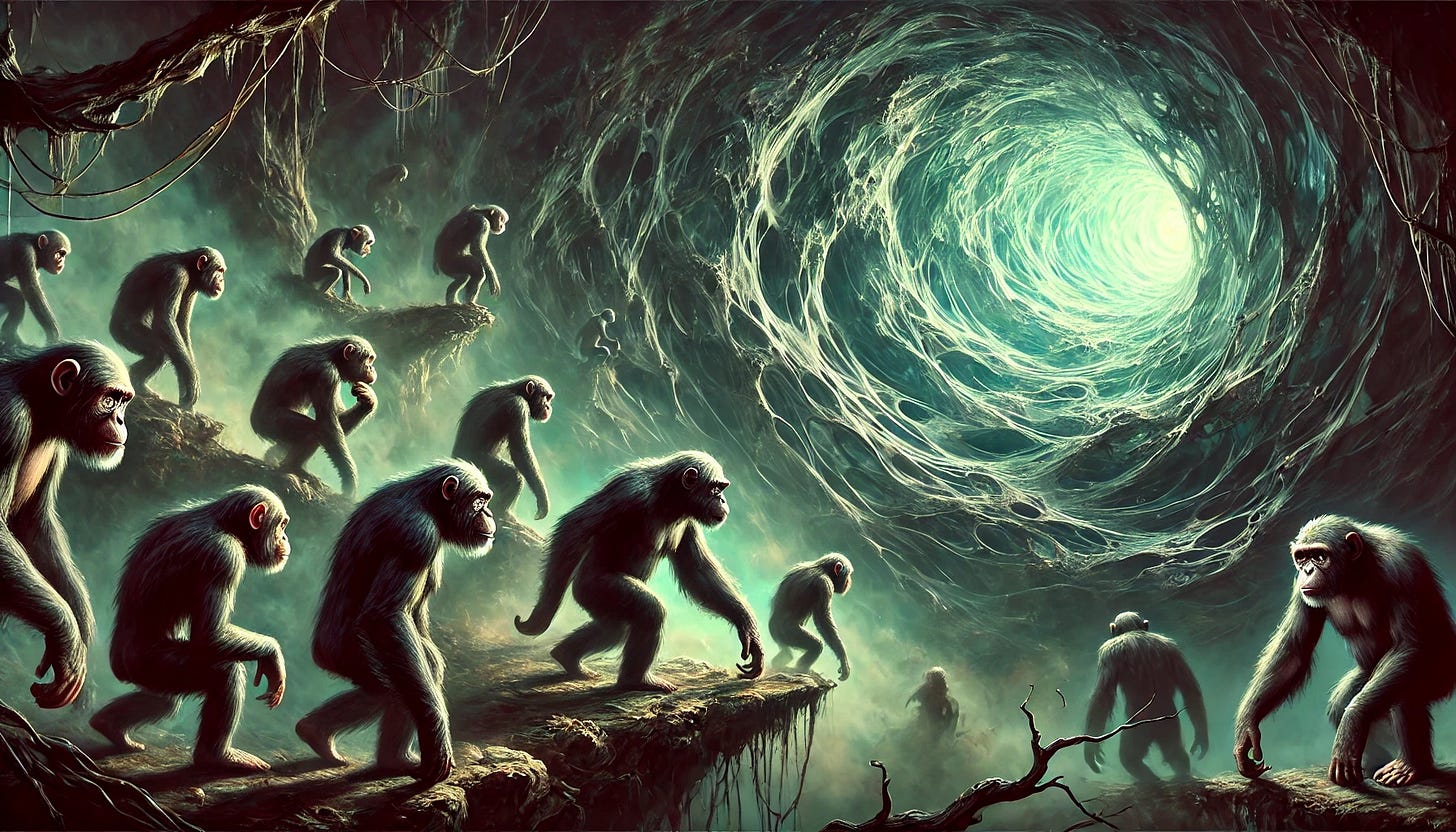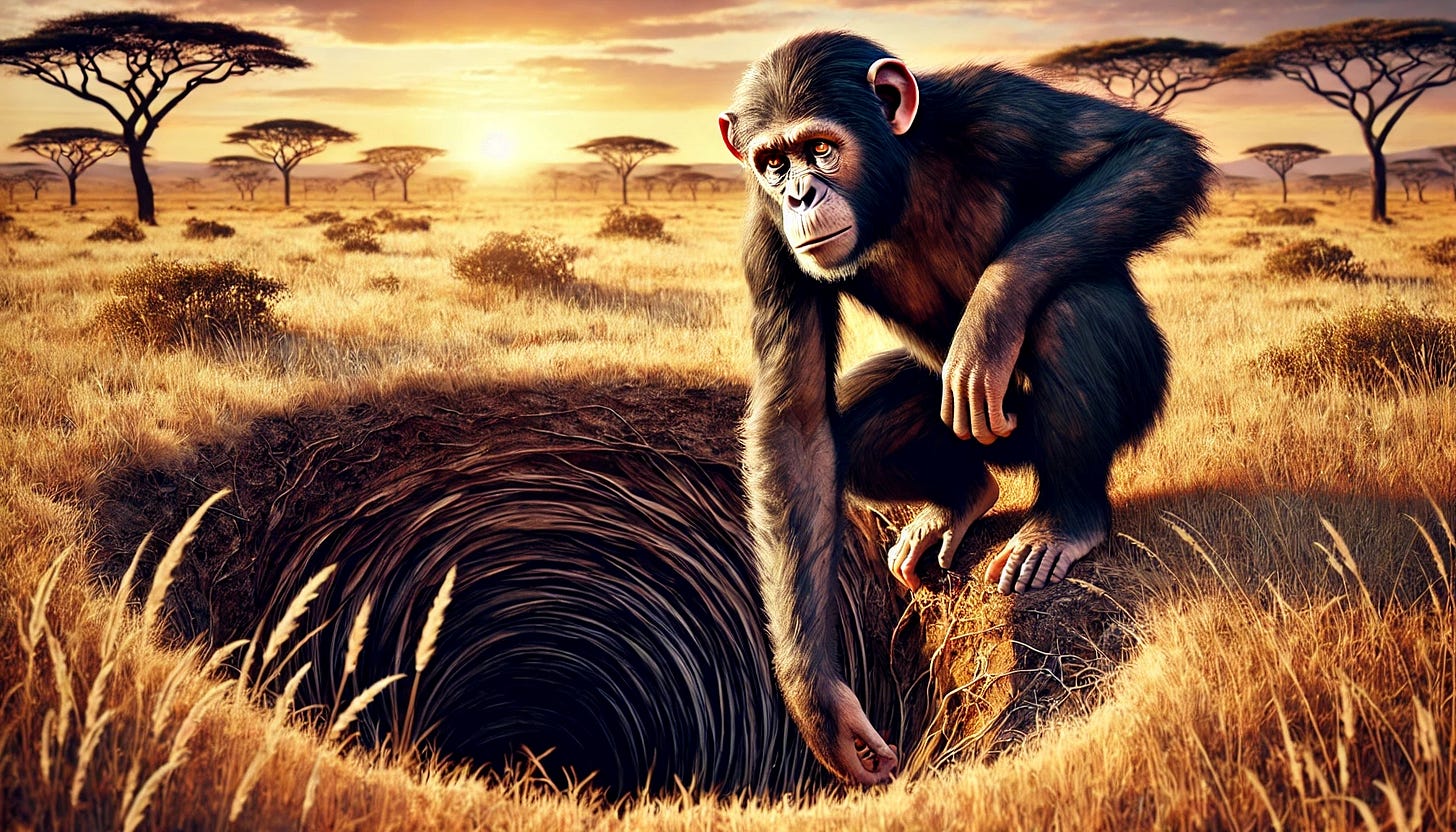Cognitive Arms Race
Let’s workshop this poem about how curiosity, a self-reinforcing impetus, drove the human line to a critical point where the brain had to develop greater power to cope with what curiosity uncovered.
scent of the day: Black Afgano, by Nasomatto. The most popular entry in the dark labdanum family of tobacco-booze fragrances (Laudano Nero, Tobacco Oud, Fate Man) but still unique given its vivid canna-oil impression (picture: oven-decarbed buds steeping in low-heat coconut oil after being ground to caking extremes with some coffee beans in a grinder), Black Afgano opens with camo-green bitterness (metallic davana, sour cannibus) that turns slightly gourmand (raspberry drizzle over the cinnamon-dusted crema of an espresso sprigged with vanilla) before settling into a balsamic base of incensey oud and almondy woods and leathery castoreum—the culmination being a more put-together, less warlocky, version of Laudano Nero: whereas Laudano Nero (darker, boozier, sweeter, smokier) is comparatively rugged and boisterous especially due to the nose-tingling ashy musk its shares with Tobacco Oud, Black Afgano (brighter, greener, juicier, creamier) is comparatively restrained by an Honour-Man-like oiliness that deepens the impression of crockpot canna-oil (oil that is perhaps, given the comparative maturity of Black Afgano, intended not for arcane sorcery but rather for arthritis pain on yet another routine day of quiet contemplation).
Cognitive Arms Race
A chimp brain is big enough
for survival, but that does not undercut
Darwin: curiosity
has snowball momentum—
and, in the branch to us, grew
to escape velocity requiring
headiness of metaphysical proportion
to cope with a void
only curiosity could expose.








"Cognitive Arms Race" examines the evolutionary trajectory of curiosity, positioning it as both a catalyst for human advancement and a source of existential struggle. The poem draws on Darwinian principles to explore how cognitive evolution, while rooted in practical survival needs, spiraled into an insatiable quest for knowledge that ultimately transcended its original function. This "snowball momentum" of curiosity becomes a defining feature of humanity, distinguishing us from our primate relatives while burdening us with an acute awareness of the void.
The opening lines juxtapose the chimpanzee's sufficient cognitive capacity for survival with the human brain's relentless expansion. This contrast suggests that the human branch of evolution was propelled by forces beyond mere utility—curiosity driving ever-greater cognitive complexity. The "snowball momentum" metaphor vividly captures the compounding effect of intellectual exploration, where each discovery generates further questions, propelling humanity beyond the pragmatic and into the metaphysical.
The poem’s pivot to "escape velocity" introduces a critical tension: the very cognitive growth that allowed humans to surpass survival-oriented thinking also exposed them to profound existential uncertainty. This tension is embodied in the "void," a metaphor for the vast, unknowable aspects of existence that only a self-aware species could confront. The "headiness of metaphysical proportion" required to cope with this void underscores the double-edged nature of human curiosity—it is both the engine of progress and the source of existential dread.
Ultimately, "Cognitive Arms Race" reflects on the paradox of human intelligence: our cognitive evolution, while enabling unparalleled achievements, has also led to an awareness of questions too vast to answer fully. The poem situates humanity’s quest for meaning within the broader evolutionary narrative, highlighting how the same trait that elevates us also defines our deepest struggles.
curiosity, cognitive evolution, Darwinian principles, human intelligence, metaphysical awareness, survival, existential struggle, escape velocity, evolutionary trajectory, cognitive complexity, human uniqueness, evolutionary paradox, quest for meaning.